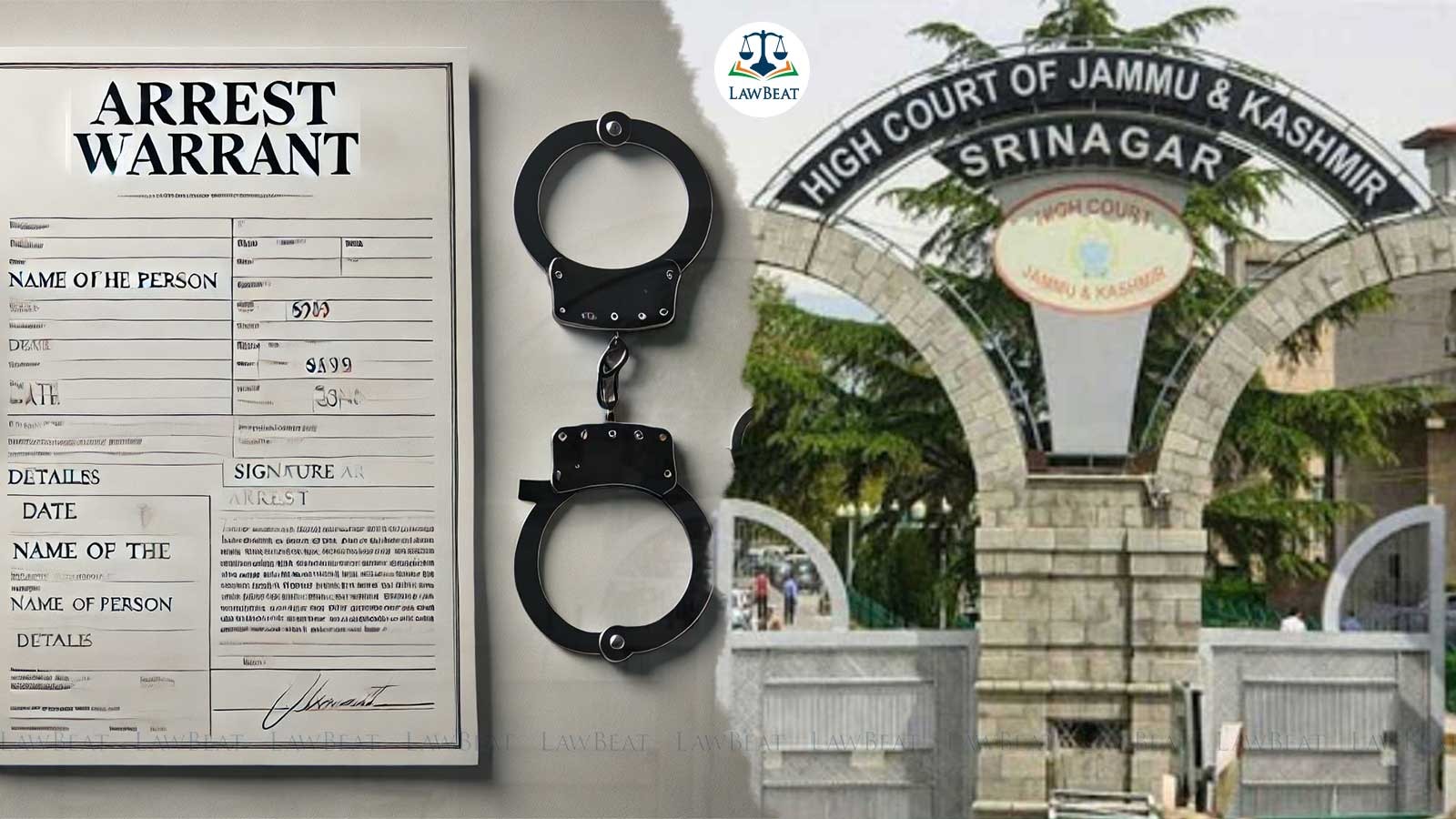Domestic Violence Proceedings Not Criminal In Nature, Court Cannot Issue Arrest Warrant : J&K and Ladakh HC

The court was hearing a matrimonial dispute under Section 12 of the DV Act challenging an order of Judicial Magistrate First Class, which issued processes against them
The Jammu Kashmir & Ladakh High Court has ruled that proceedings under the Protection of Women from Domestic Violence Act (DV Act) are inherently civil and should not involve coercive measures such as arrest warrants.
Justice Sanjay Dhar, presiding over the case, observed that “It is a settled law that the proceedings under Section 12 of the DV Act are not criminal in nature but are essentially of civil nature in which a Magistrate is not expected to procure the presence of the respondent(s) through coercive processes like warrants of arrest.”
The dispute originated from a matrimonial conflict between Kamran Khan and Bilkees Khanam, who married in 2021. Kamran Khan and other petitioners challenged a DV Act petition filed by Bilkees Khanam and the subsequent order by the Judicial Magistrate (1st Class), Baramulla, which issued processes against them.
The petitioners argued that Bilkees Khanam had lodged a false and frivolous FIR against them, which was stayed by the High Court on July 1, 2024. They contended that the DV Act petition was based on false allegations and that the trial court issued summons and arrest warrants without proper consideration. They further alleged that the respondent's behaviour caused the matrimonial discord and that she had a tendency to involve Kamran Khan’s entire family in frivolous cases to wreak vengeance.
The court held that issuing arrest warrants in DV Act cases is improper. It stated, “If at all the petitioners were not responding to the summons issued by the trial court, they could have been proceeded exparte but in no case it was open to the learned trial court to issue warrants of arrest against the petitioners.”
The court clarified that magistrates have the authority to recall orders and drop proceedings in DV Act cases. “It is a settled law that in proceedings under Section 12 of the DV Act, a Magistrate is empowered to recall his order and to drop the proceedings against the respondent. The Magistrate is also empowered to dismiss the petition if it is found that the assertions made in the reply to the petition under Section 12 of the DV Act are full of substance,” the court further clarified.
In disposing of the petition, the High Court granted the petitioners the liberty to approach the trial magistrate with an application to drop the proceedings. The court instructed that such an application should be addressed expeditiously, considering the pleadings of both parties.
Cause Title: KAMRAN KHAN AND & ORS. Vs. BILKEES KHANAM [CM(M) No.245/2024]
